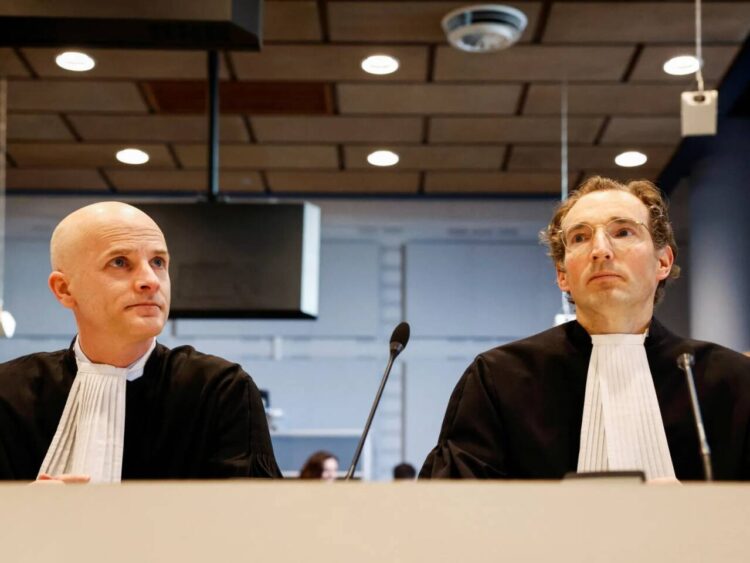In a significant legal development, a Dutch Court has issued a directive to temporarily halt the delivery of essential components for F-35 fighter jets, extensively used by Israel in the current conflict in the Gaza Strip. The appeals court’s decision emphasized a ‘clear risk’ and a high likelihood that the supplied parts from the Netherlands were being employed in activities that could result in ‘serious violations of international humanitarian law.’ This decision was prompted by an appeal from prominent human rights organizations, including Amnesty International and Oxfam, challenging a prior lower court decision that dismissed claims of contributing to alleged humanitarian law violations by Israel in Gaza.
The court firmly rejected the Dutch state’s argument that there was no need for a reevaluation of the export permit. The judges maintained that there was a significant likelihood of Israel deploying its F-35s in attacks on Gaza, potentially leading to unacceptable civilian casualties. Despite this ruling, the Dutch government swiftly declared its intention to appeal the order at the Supreme Court, asserting that the weapon parts were crucial for Israel’s defense against regional threats, including those from Iran, Yemen, Syria, and Lebanon.
This legal development follows a contentious legal battle, with human rights organizations accusing the Dutch government of complicity in war crimes by maintaining the deliveries. In December of the previous year, a court dismissed the case, emphasizing the government’s broad discretion in weighing political and policy issues related to arms exports. However, the appeals court took a different stance, highlighting that political and economic considerations should not override the evident risk of violations of the laws of war.
The appeals court’s decision goes beyond rhetoric, ordering the Dutch government to suspend all exports of fighter jet parts to Israel within seven days. “It is undeniable that there is a clear risk that the exported F-35 parts are used in serious violations of international humanitarian law,” stated Judge Bas Boele in the ruling. This has sparked discussions about the ethical dimensions of arms exports amid ongoing conflicts, placing the Dutch government at the center of a complex and consequential legal debate. The decision to appeal ensures that this multifaceted legal battle will continue, as the global community closely monitors the evolving situation.

















Comments